The ‘disgraceful’ fall of Sheikh Hasina: What lessons have we truly learned?
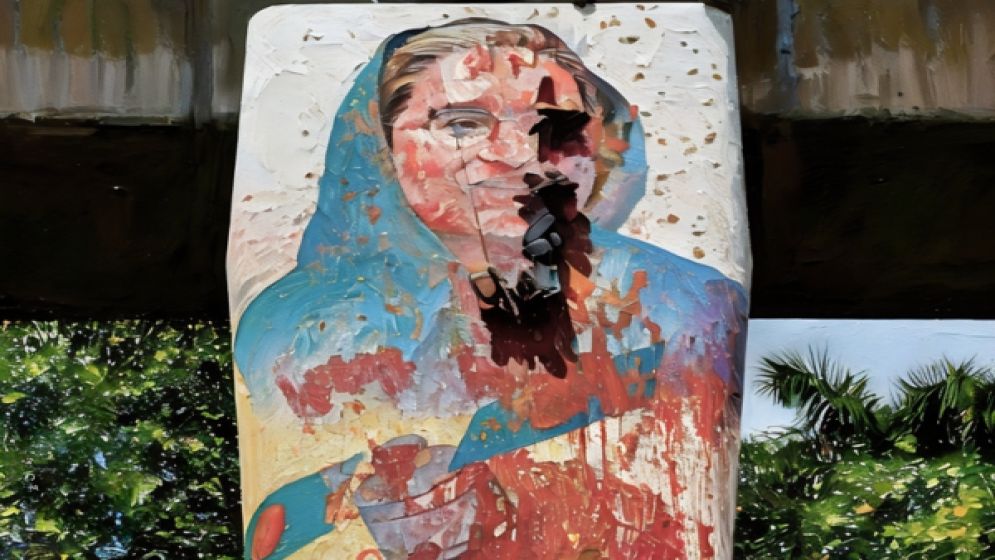
The sudden collapse of Sheikh Hasina and the Awami League government, which had appeared invincible for 15 years, provides several important lessons.
The Awami League was infamous for suppressing dissent and movements it perceived as threats, often resorting to severe and illegal measures.
Despite the intense violence, intimidation, and threats, many people bravely took to the streets, risking their lives with no guarantee of safety.
The student movement’s ability to mobilize people against a harsh oppressor was extraordinary. While the oppressor’s own actions were a significant factor, the students’ achievement was remarkable.
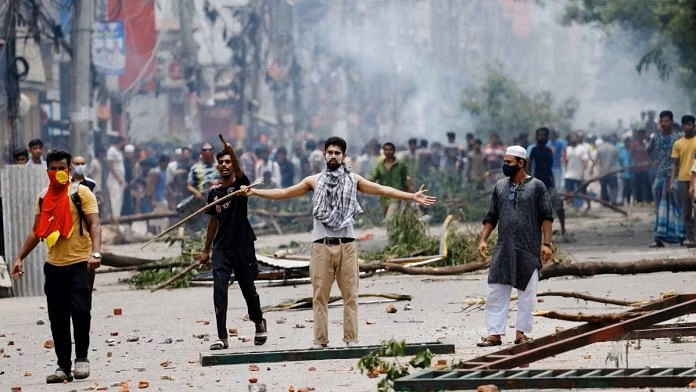
But there is no doubt that Hasina’s downfall is largely due to her
own actions. In her drive for absolute power, she alienated both domestic and
international allies.
She targeted individuals she had grievances against, including the ailing former Prime Minister Khaleda Zia and the country’s sole Nobel Laureate, Professor Muhammad Yunus, placing them under house arrest.
During her first term, Hasina exploited youthful fervor to pursue political leaders accused of war crimes from Bangladesh’s 1971 independence war. However, while she executed opposition leaders, she spared those within her own party guilty of similar crimes.
In 2013, she ordered a brutal crackdown on a sit-in by religious school students whom she labeled as radical Islamists, resulting in numerous deaths.
In hindsight, this should have been a warning sign for the Bangladeshi public. Yet, they continued to place their trust in Hasina, who promised new infrastructure and more job opportunities.
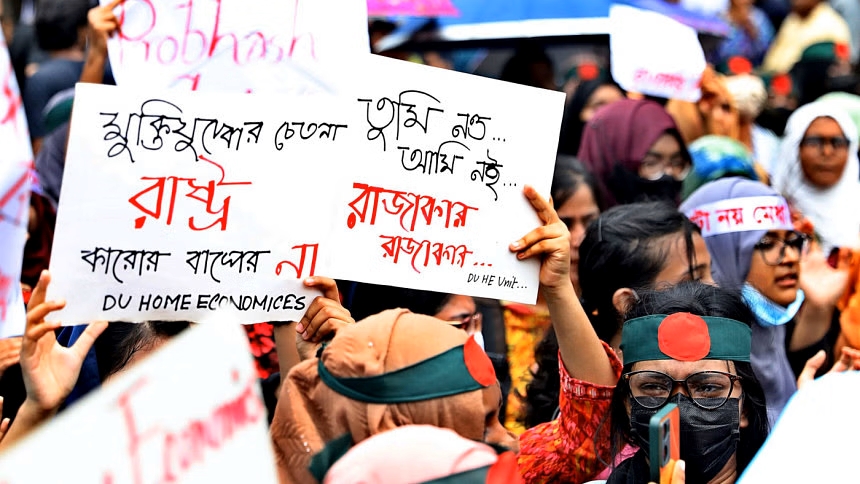
Overused narrative backfired
Hasina frequently highlighted her personal and familial tragedies, including the 1975 military coup that killed her father, Mujibur Rahman, the nation's founder.
Her narrative of having only the people of Bangladesh to rely on became a powerful, compelling rallying cry that was hard to challenge.
Drawing on her family's legacy and lore, Sheikh Hasina fiercely attacked her critics, often labeling them as “razakars,” a term used pejoratively for those who supported the Pakistani military during the independence war.
Last month, she once again employed this rhetoric, sparking outrage among protesters and calls for an apology. However, she deemed it beneath her to apologize or even acknowledge the damage her words had caused.
Hasina's refusal to heed public opinion stemmed from her deep-seated belief in her own political invincibility. As the daughter of Bangladesh's founding father, she had cultivated an image of herself as an untouchable, almost divine figure—an emblem of democracy.

To her, compromising would have been an
unacceptable sign of weakness that could have jeopardized the personality cult
she had built over her 15 years in power.
Even as her control over the country waned, she remained convinced that her legacy and the loyalty of her core supporters would protect her from having to make such a humbling concession.
The role of economic mismanagement
The country’s faltering economy was also a critical factor in the recent uprising. The development narrative, which was once Hasina's strongest asset, has lost its effectiveness for at least four years.
While Bangladesh remains one of the fastest-growing economies in South Asia, progress has not matched the expectations of a population where over 60 percent is aged between 15 and 65. Additionally, many businesses are still struggling to recover from the impacts of the Covid-induced crisis.
Besides, over the past decade, growing inequality, rising unemployment, and soaring prices for essential goods have fueled public outrage over nepotism and rampant corruption.

The Awami League government's persistent
refusal to address or even acknowledge these issues only heightened public
discontent.
A key lesson from Bangladesh's situation is that rapid GDP growth and strong export performance alone cannot guarantee widespread prosperity.
When economic gains are concentrated at the top, most citizens see little benefit or even experience a decline in their own circumstances, which exacerbates frustration and highlights the need for a more equitable distribution of wealth and income.
Another important lesson is the significance of employment. While creating jobs, particularly for young people, is crucial, so is ensuring fair wages and decent working conditions.
When the majority of people's incomes stagnate or decline, public confidence in official claims of economic progress diminishes.
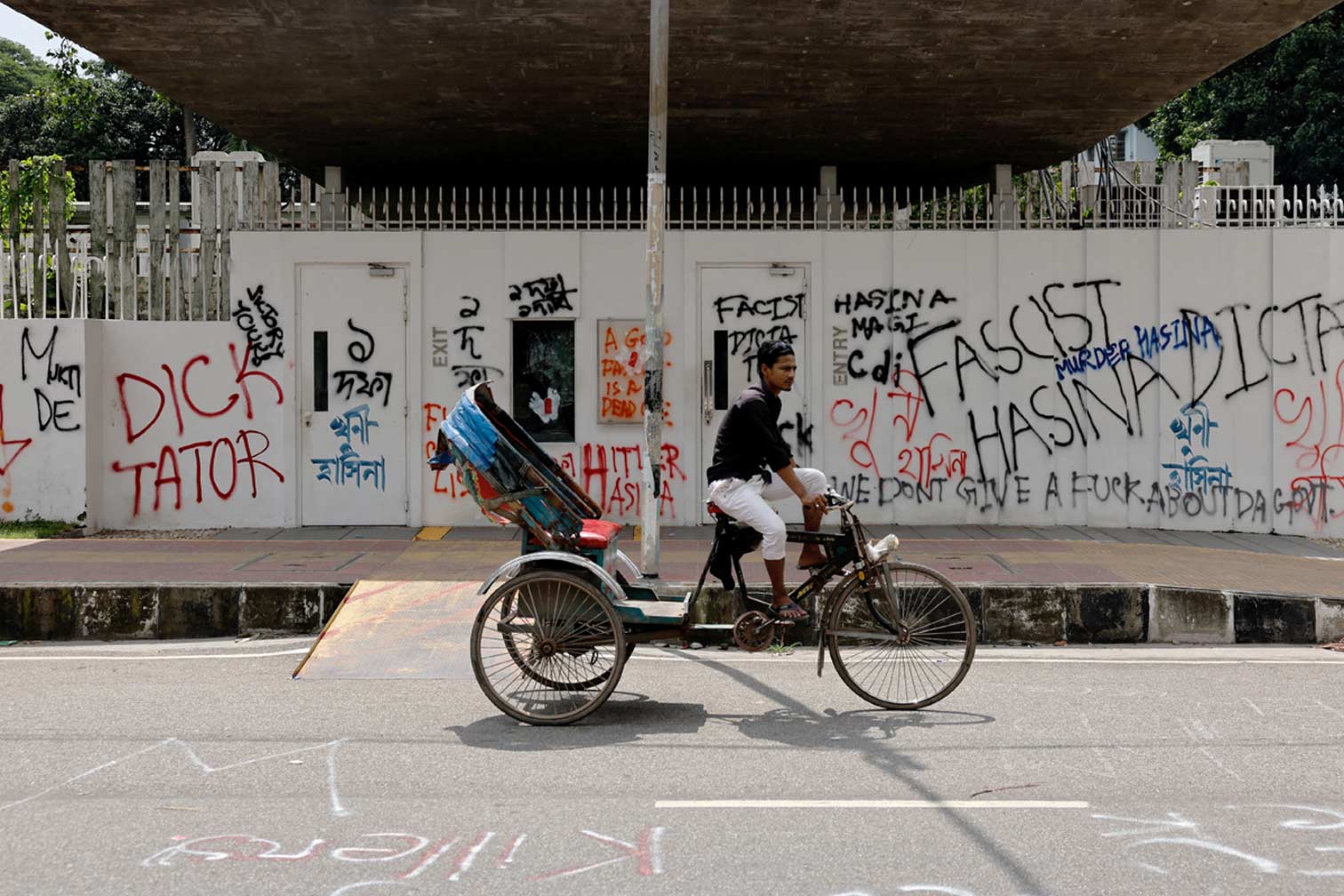
Fighting for a just cause
Our society is often fragmented along many lines, but the protests led by the students revealed that most Bangladeshis share fundamental values such as the sanctity of life, the belief that killing is wrong, and a commitment to justice.
Through their steadfast adherence to these principles, the students inspired people to come together.
On the day of Hasina's ouster, one of the student coordinators made an interesting point during a television interview. When asked if he envisioned a new Bangladesh with freedom of speech, he clarified that he wanted people to have the freedom to dissent.
This nuanced distinction is crucial. While many of us profess to support freedom of speech when it aligns with our views, it is our reaction to dissenting opinions that truly tests the authenticity of our commitment.
We all profess a belief in justice. However, following the fall of the Awami League and the subsequent vengeful violence against its activists, these students have underscored the importance of pursuing justice in a morally and legally proper manner.
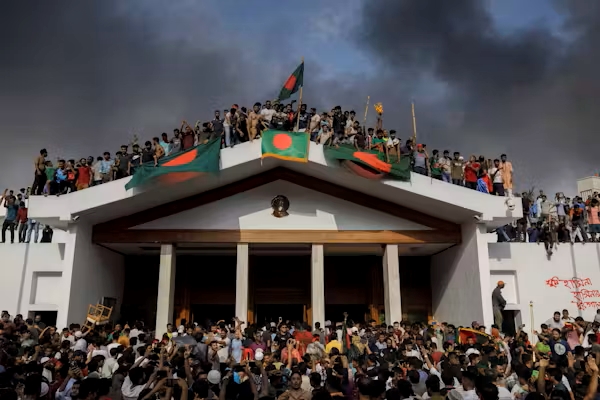
Regardless of the crimes committed,
everyone deserves their day in court because the principle of "habeas
corpus" is a monumental civilizational achievement.
Equally vital is the concept of "innocent until proven guilty," a principle rooted in the Magna Carta—a cornerstone of justice for which humanity has made tremendous sacrifices.
To punish those responsible for the crimes of the Awami League government in ways that contravene these principles would make us the very monsters we seek to avoid.
The damage inflicted by Hasina and her Awami League on Sheikh Mujib's legacy and the party's reputation is surely unparalleled.
As she and other top Awami League leaders fled the country, they left thousands of their party activists in dire conditions. This serves as a stark reminder: prioritizing party loyalty over principles can lead to a similarly dire outcome.
—-
Harun Ur Rashid is a journalist and commentator

